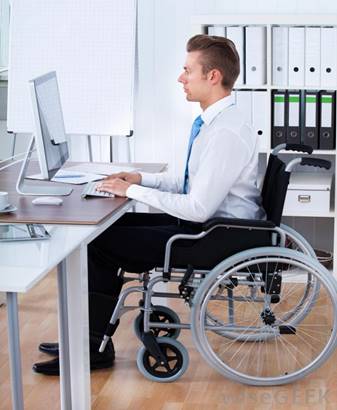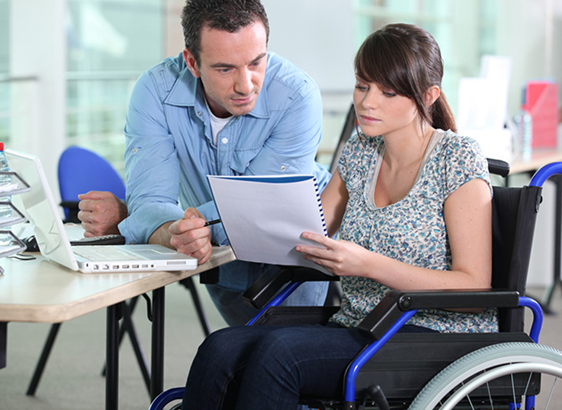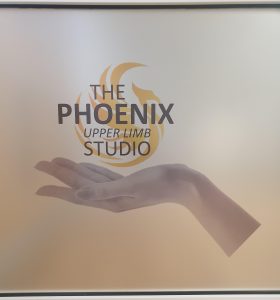Occupational Therapy and Phoenix Studio
The role of Occupational Therapy is to help you become as independent as possible in all aspects of your life.
- When admitted to the National Spinal Injuries Centre for rehabilitation you will be allocated a named Occupational Therapist (OT)
- However you are likely to also be treated by other members of the team during your stay
- The main areas your OT will focus on during your admission are as follows:
Personal activities of daily living
- These include feeding, drinking, grooming tasks and getting washed and dressed.
- Your OT will work with you to practise new techniques or look at small aids, splints or adaptations to help you.
Domestic activities of daily living
- These include food preparation and laundry.
- You may practise these skills with your OT and discuss adaptations and/or activity pacing, as appropriate.
Using technology
 Accessing mobile phones, tablets or computers can be addressed with your OT and our Assistive Technologist.
Accessing mobile phones, tablets or computers can be addressed with your OT and our Assistive Technologist.- If appropriate, your OT will liaise with your local area regarding an environmental control system to enable you to control certain aspects of the home independently e.g. lights, TV, door entry systems.

Posture and seating
- OTs will work in conjunction with physiotherapy to address your individual postural needs and equipment requirements.
- OTs are also responsible for powered mobility provision and may be able to loan you a powered wheelchair for your admission if you are unable to self-propel a manual wheelchair.
- They will also liaise with your local wheelchair service regarding long term powered wheelchair provision, if required
Returning home or exploring rehousing
- OT’s will work with you, your family and community occupational therapists based in your local area regarding this.
- They will also make equipment recommendations to your local area according to your discharge needs.
- It may be necessary for your OT to assess your home environment in person, with or without you, in order to help organise your discharge.
- Depending on your circumstances, it may be possible for you to go on weekend leave during your admission and OT’s will support and advise with this process.
Returning to driving
- Your OT will be able to advise and support you with the process of returning to driving.
- They can also provide information on vehicle adaptations, wheelchair accessible vehicles, blue badge applications and travelling on public transport.
Returning to education or employment
- The OT team will work with you in suggesting adaptations
- They may discuss a phased return to work and/ or liaise with employers.
- There is also a Careers and Employment Advisory Clinic you can be referred to for support and advice, if required.


Returning to or pursuing new leisure activities
- OT’s can help you problem solve access or adapt tasks to enable you to take part in activities you enjoy.
- The department has a therapeutic garden which can be used to practice gardening skills, or just to enjoy some alone time away from the ward.
Returning to your previous life roles
- OT’s will be able to support you in resuming previous life roles that may be important to you, such as being a parent.
If your spinal cord injury affects your upper limbs, OT’s will be involved in helping to preserve or improve your upper limb function:
- This may be through the provision of splints, positioning regimes, functional adaptations (such as straps or splints) and provision of upper limb exercises to improve range of movement and strength.
- In order to improve function various treatments may be used, such as electrical stimulation or vibration, depending on your individualised treatment plan.
You may also be referred to the Phoenix Upper Limb Studio (click here for further information)

Topic Content
0% Complete
0/2 Steps


